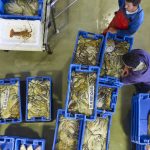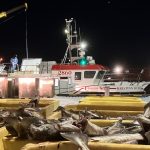SEAFOODplus project, REFHEPA, provide extensive information regarding the contaminated shellfish such as oysters and mussels that could be useful to people associated with this industry and regulators involved in the production of safe shellfish. The document highlighted basic information concerning the major viruses that be found in sewage-contaminated shellfish. These viruses can cause hepatitis and gastroenteritis that poses great health hazards.
The consumption of bivalves is high in Europe and so the risks are high in that part of the world. The document also highlighted the significant technological changes in the ability to detect the contamination level in shellfish. It states that recent approved treatment and control measures can cure but fail to eliminate the risks totally. The project, REFHEPA, also standardize RealTime PCR methods that detects pathogenic viruses in shellfish because this system plays vital role in food safety area.
The European Committee for Standardization (CEN) process could effectively use the results of this research in order to introduce validated methods for routine use in laboratories in Europe. According to the results environmental conditions, like heavy rainfall, can have effective role in the viral contamination. It is obvious that such events can cause an overflow of sewage and then it creates a route for virus transmission.
Therefore, the SEAFOODplus projects helps developing new tools for detecting viruses and creates awareness of virus contamination of shellfish. It is high time that people associated with shellfish industry should come forward and determine strategies to minimize the virus risk that comes with the consumption of shellfish.








